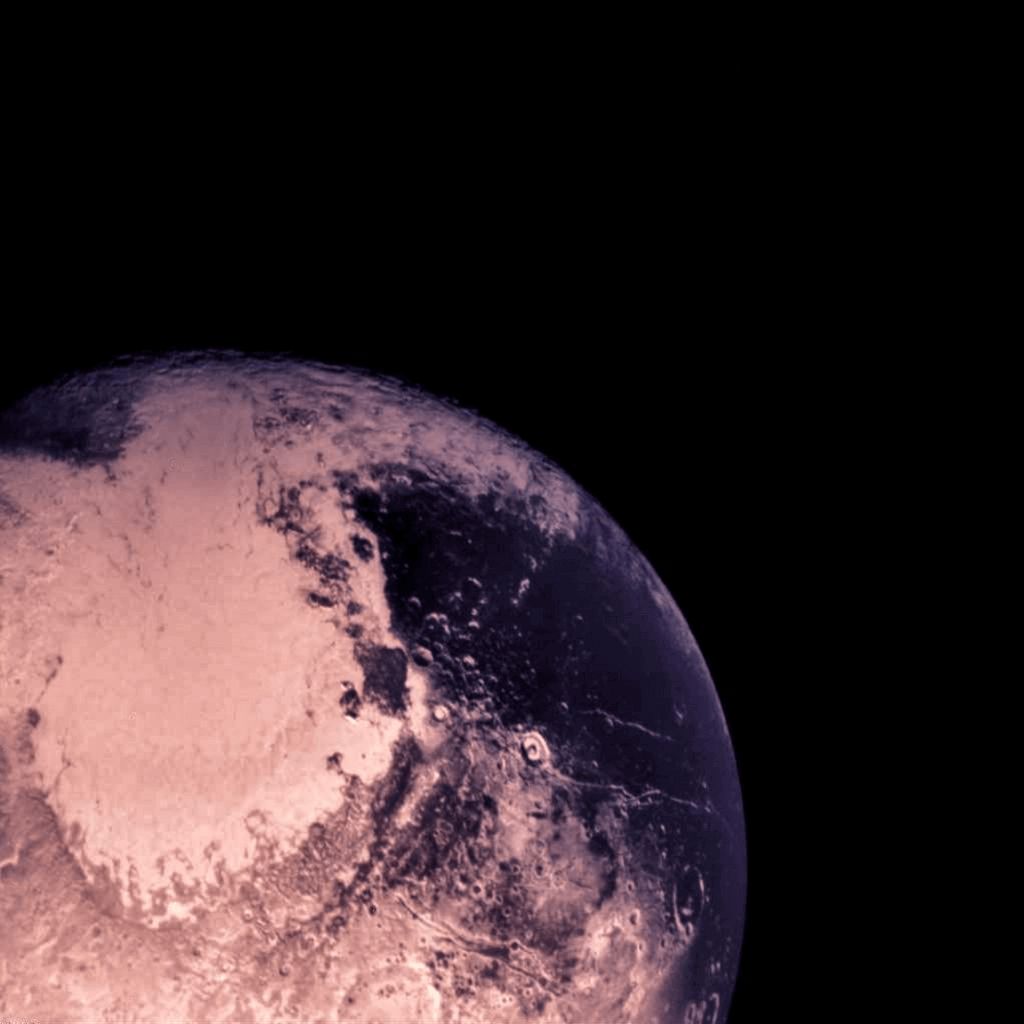Pluto Day
(Also known as Pluto Discovery Day)
Pluto Day is observed next on Thursday, February 18th, 2027 (350 days from today).

On February 18, 1930, Clyde W. Tombaugh discovered Pluto, the star that made the scientific world controversial and was stripped of the title "planet" in 2006. And to celebrate the discovery of Pluto, February 18 is called Pluto Day every year.
Pluto, is the second most massive known dwarf planet in the Solar System (after Eris) and the tenth most massive object directly orbiting the Sun.
Formerly classified as a planet, Pluto is now considered the largest member of a separate region known as the Kuiper Belt.
Pluto and its largest moon, Charon, are often considered to be a binary system because the centers of mass of their orbits do not lie within any one object.
Since 1930, since it was first discovered, Pluto has been considered the 9th plant of the Solar Syatem. Until 2006, when scientists came up with 3 criteria for being a planet. In the late 20th and early 21st centuries, many Pluto-like objects were discovered in the outer Solar System, most notably the scattered disc object Eris, which has a larger mass than Pluto. King 27%. On 24 August 2006 the International Astronomical Union defined "planets" for the first time. This definition does not include Pluto, which is reclassified by the International Astronomical Union as a member of a new class of dwarf planets along with Eris and Ceres.
Pluto's Structure
Like other members of this belt, it is mainly composed of rock and ice and is quite small in size: approximately one-fifth the mass and one-third the volume of Earth's Moon.
Pluto's Atmosphere
Pluto's atmosphere is a thin layer of gas composed of nitrogen, methane, and carbon monoxide. They are derived from ice on the surface that evaporates. The surface pressure in the atmosphere varies from 6.5 to 24 μbar.
Pluto's flattened elliptical orbit is thought to have a major influence on its atmosphere: as Pluto moves away from the Sun, its atmosphere freezes over and falls back to the surface. As Pluto gets closer to the Sun, the surface temperature rises, and the ice on the surface sublimates into gas.
Pluto's size and mass
Pluto is not only smaller than all the other planets in the Solar System, but also smaller than the following moons: Ganymede, Titan, Callisto, Io, the Moon, Europa, and Triton. Meanwhile, Pluto is larger than all the asteroids of the main ring, between Mars and Jupiter, or of the Kuiper belt. This leads scientists to believe that Pluto is not a full-fledged planet, but belongs to a popular class of celestial bodies called plutinos – small planets like Pluto
Pluto's Orbit
Pluto's orbit differs from other planets due to its orbital inclination >17° and eccentricity of ~0.25. Only Mercury's orbit has a significant inclination of ~7° and an eccentricity of ~0.2. The other planets have elliptical orbits with very small eccentricities. Large eccentricity means that part of Pluto's orbit is closer to the Sun than Neptune's orbit. As it approaches perihelion, Pluto is closer to the Sun than Neptune.
Orbit avoids Neptune
Although Pluto's orbit clearly intersects Neptune's orbit when viewed directly from above the ecliptic, the two objects cannot collide. This is because their orbits are aligned so that Pluto and Neptune never come close. Many factors influence this.
Neptune's satellite
Pluto has five known natural satellites: Charon, first identified in 1978 by astronomer James Christy; and two smaller moons, Nix and Hydra, both discovered in 2005, and two more, Kerberos.
History of Pluto Day
Pluto Day celebrated on February 18 every year has its origins in the first human discovery of Pluto on February 18, 1930.
Observing Pluto Day
On Pluto Day, observatories and places that study the solar system organize activities in response to the savings that come with it. Go to the observatories, set up your own telescope and try to find Pluto. Learn more about Pluto and the Dwarf Planets. If you think Pluto should still be classified as the Planets of the solar system, you can engage in research and write or discuss it with others. You can also find documentaries related to Pluto. Whatever you do, share your understanding and support for the planet on social media with the hashtag #PlutoDay.
Observed
Pluto Day has been observed annually on February 18th.Dates
Tuesday, February 18th, 2025
Wednesday, February 18th, 2026
Thursday, February 18th, 2027
Friday, February 18th, 2028
Sunday, February 18th, 2029


